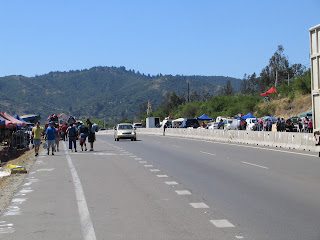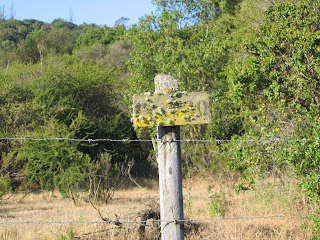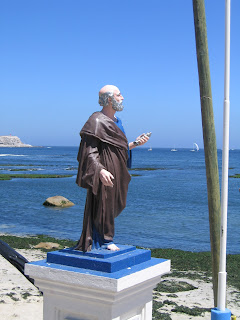Alexis
was an enigma to me at first. He was 44 and from Southern
Chile and not quite on vacation. He was in Vina del Mar Southern
Chile . At night we would invite him to go out with us but he was
busy doing other things and would roll in around 5 or 6 in the morning, sober.
On my last night in Vina he told me he wanted to take me out for a beer. At
around 1 in the morning he invited me to go out with a Mexican and an American
guy who were both students in Santiago
The next
morning I bought strawberries from a woman on the road in San Pedro, the
frutilla capital of Chile Santiago
The next morning I rode in
hills to San Fernando and explored the town by bicycle and stopped by a local
tourist information office where Sole, a very intelligent woman with an immense
knowledge of the culture and geography and history of Chile, told me I should camp at her
friend’s home in Puente Negro, and I rode to Puente Negro as the sun set on the
cherries and vineyards. It was Tania’s husband’s 70th birthday and
we ate cake and torts and drank wine and a mixture of red wine an cola and I
was given a large plate of blueberries and cherries for my tent. A man who was
there to repair the swimming pool joined us for cake and then in the morning
for tea and more cake for breakfast. The stars during the night glowed as if
proximate and the air was cool yet warmed early in the morning. Tania’s husband
had survived Santiago Vina Del Mar
































































































































